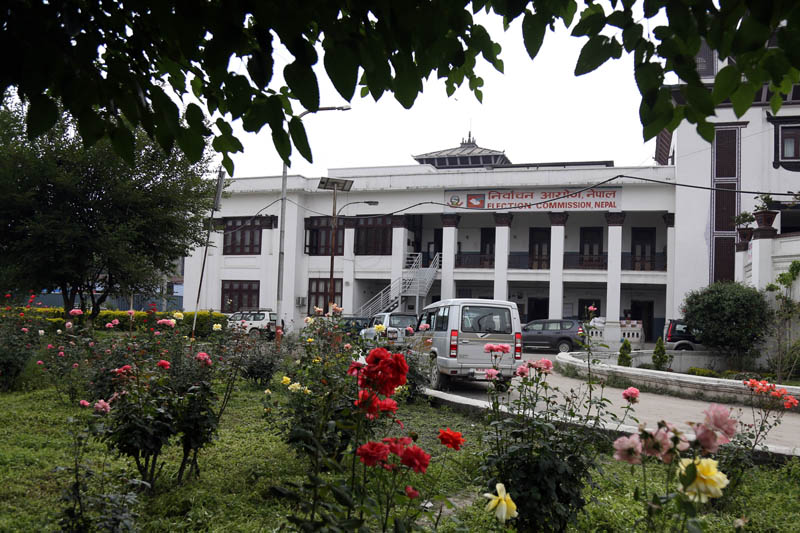16 parties yet to submit poll expense details
Expenditure details are required to make parties accountable
Kathmandu, June 9
Sixteen political parties have not submitted election expenditure details to the Election Commission raising questions of accountability.
Section 24 of Election Commission Act stipulates that political parties and candidates should submit their election expenditure details within 30 days after the final poll results, but even after six months, some fringe parties have not complied with the legal provision.
Forty-nine parties had contested parliamentary proportional representation election out of which only four — Nepal Communist Party (NCP), Nepali Congress, Federal Socialist Forum-Nepal and RastriyaJanata Party-Nepal — won seats.
These four parties submitted their election expenditure reports for both parliamentary and provincial PR elections, but parties that lost election, didn’t submit their poll expenditure details for parliamentary and provincial proportional representation elections. Candidates contesting elections under the first-past-the-post electoral system also have not submitted their election expenditure. EC sources said many National Assembly members had also not submitted their election expenditure details.
Rights activist Pradip Kumar Pokharel, who had monitored the polls, said the EC had failed to uphold election laws.
“The EC must take stern action against those parties that have failed to furnish poll expenditure details within the stipulated time,” he said, adding that the parties were violating laws because EC was not taking action against them. He further said the EC had spent unlimited amount of money to conduct elections and it feared that if it pointed the finger at the parties, they would also point their finger at it.
“The EC which spent only Rs 11 crore in the 1991 general elections spent Rs 11 crore this time only to repair vehicles,” he said and added that the EC spent three billion rupees on voter education. “The EC spent a huge amount on voter education and yet the percentage of invalid votes was much higher this time,” he added.
Former Chief Election Commissioner NeelkanthaUprety said the law required political parties to submit election expenditure details to make the parties accountable, but often the parties violated this provision. He said the EC had to uphold elections rules and laws to ensure that all parties, big or small, complied with legal provisions.
“Although the laws have fixed the ceiling of expenses for candidates and parties, nobody abides by the provision. Parties spend much more than the permitted limit,” he said, adding that the EC should also look into the details of the source of income of candidates and parties.
If political parties were allowed to spend unlimited amount during election, the election would become a game of rich people which would foster the culture of corruption, he argued.
Joint Secretary at Election Commission SushilKoirala said the EC had the option of penalising erring parties by imposing fine and not updating the registration of erring parties.






